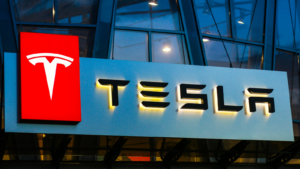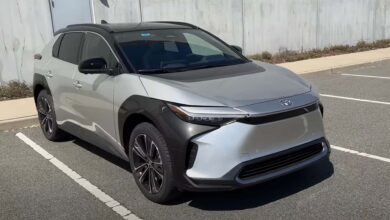Market Rebound Alert: 3 EV Stocks to Buy Before They Surge

Source: shutterstock.com/JLStock
U.S. equities appear to be back in rally mode. The April CPI report is partially responsible. Headline inflation, from a month-over-month perspective, came in below estimates, while “core” inflation, which does not account for food and energy costs, was in line with what economists had been predicting. Most importantly, the inflation print represented the first cooling of prices in 6 months. This has sparked a general resurgence in U.S. equities prices.
Looking at the Nasdaq and S&P 500 indices, both are up on a quarter-to-date perspective. The Global X Autonomous & Electric Vehicles (NASDAQ:DRIV) has, of course, been slow to recover. High interest rates, waning consumer demand, intense competition has cut into the profits and stock prices of many public electric vehicle (EV) companies.
However, better-than-expected macroeconomic data could very well reverse this trend. Below are 3 EV stocks to buy before they surge.
BYD (BYDDY)

Source: shutterstock.com/Trygve Finkelsen
BYD (OTCMKTS:BYDDY) is a force to be reckoned with in the global EV space. Not only had the EV manufacturer been able to unseat Tesla (NASDAQ:TSLA) in terms of EV deliveries in December 2023, but BYD has also continued to grow sales and deliveries robustly in the first quarter of 2024. Recent April delivery numbers have also been uplifting. In particular, BYD sales increased 49% year-over-year to 312,048 deliveries in the month of April.
Despite great sales growth, the hypercompetitive environment of China’s EV market has taken a toll on BYD profits. As we saw in their first-quarter earnings print for fiscal year 2024, operating profits slipped more than analysts had predicted. Shares of the Chinese EV behemoth have risen just about 7% for the year as of the end of last Friday’s trading session. The stock trades at around 17.5x forward earnings, and as the macro environment becomes less volatile, BYD will be one of the stocks poised for a significant resurgence.
Tesla (TSLA)

Source: Vitaliy Karimov / Shutterstock.com
America’s iconic EV maker Tesla has seen its share price plummet in 2024. Disappointing delivery figures and intense competition coming from emerging Chinese EV giants have put Tesla into a sort of bind. Tesla’s Shanghai factory delivered 18% fewer units in April from a year-over-year perspective and 30% fewer than in March. This slump occurred while Chinese EV manufacturers enjoyed a jump in shipment figures. In other words, Elon Musk’s recent visit to China, which bore him tentative government approval for his company’s autonomous driving system, might not be enough to bring Tesla out of its doldrums.
What is consistent with Tesla’s share price is its ability to rebound under certain market conditions. The automaker’s share price has fallen more than 28% for the year as of last Friday, which could create an intriguing buying opportunity for investors willing to bet on Tesla’s ability to resurge.
Li Auto (LI)

Source: Robert Way / Shutterstock.com
Li Auto (NASDAQ:LI) is another Chinese EV maker whose stock has taken some damage this year but has the chance to rebound significantly. The pricing war in Li Auto’s largest market, China, has weakened margins and compressed revenue growth. In April, for example, delivery sales growth was essentially flat, only growing 0.4% on a year-over-year basis. This figure was also down 11% from March. In mid-April, Li Auto announced the launch of the Li L6, a five-seat family SUV that will have a price of around $34,507. New cars at different price points can help to stave off waning demand and perhaps juice up growth numbers.
Li Auto’s share has fallen around 33.5% on a year-to-date basis. Similar to the other entries on this list, LI could benefit from an improving macroeconomic environment. If we get more inflation reports like that of April, the stock as well as the entire EV sector could see a resurgence in price as traders become optimistic on rate cuts.
On the date of publication, Tyrik Torres did not have (either directly or indirectly) any positions in the securities mentioned in this article. The opinions expressed in this article are those of the writer, subject to the InvestorPlace.com Publishing Guidelines.



